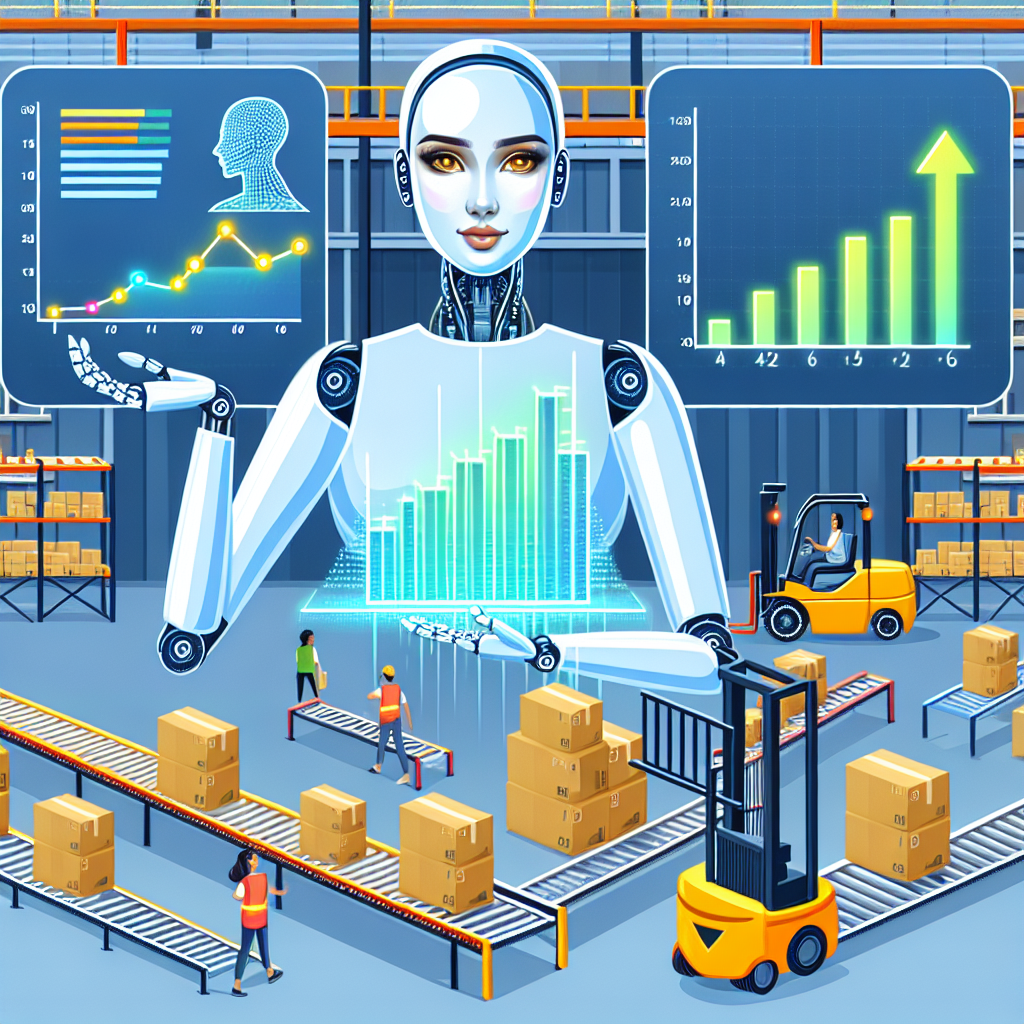In today’s fast-paced and competitive business environment, companies are constantly seeking ways to optimize their operations and increase their profitability. One area where this is particularly critical is in logistics and supply chain management. The ability to dynamically adjust pricing and manage revenue in real-time can have a significant impact on a company’s bottom line. This is where leveraging artificial intelligence (AI) comes into play.
AI has revolutionized many industries, and logistics is no exception. By harnessing the power of AI, companies can now analyze vast amounts of data in real-time to make more informed decisions about pricing and revenue management. This can help companies optimize their operations, increase efficiency, and ultimately drive higher profits.
One of the key benefits of using AI for dynamic pricing and revenue management in logistics is the ability to adapt to changing market conditions. Traditional pricing strategies often rely on historical data and manual analysis, which can be time-consuming and prone to errors. AI, on the other hand, can analyze real-time data from a variety of sources, such as customer behavior, competitor pricing, and market trends, to make more accurate pricing decisions.
For example, AI algorithms can analyze customer buying patterns and preferences to determine the optimal price for a particular product or service. This can help companies maximize their revenue by pricing products at the right level to attract customers while still maintaining profitability. In addition, AI can also help companies identify opportunities for upselling and cross-selling, further increasing revenue.
Another benefit of using AI for dynamic pricing and revenue management in logistics is the ability to optimize inventory levels. By analyzing demand forecasts and market trends, AI can help companies determine the optimal inventory levels for each product, minimizing stockouts and overstock situations. This can help companies reduce carrying costs and improve overall supply chain efficiency.
Furthermore, AI can also help companies optimize their transportation and distribution networks. By analyzing real-time data on traffic conditions, weather patterns, and other factors that can impact delivery times, AI can help companies make more informed decisions about routing and scheduling. This can help companies reduce transportation costs, improve delivery times, and enhance customer satisfaction.
In addition to optimizing pricing, revenue management, and operations, AI can also help companies improve customer service. By analyzing customer data and feedback, AI can help companies personalize their offerings and provide a more tailored experience for each customer. This can help companies build customer loyalty and increase repeat business.
Overall, leveraging AI for dynamic pricing and revenue management in logistics can help companies stay competitive in today’s fast-paced business environment. By harnessing the power of AI to analyze real-time data, companies can make more informed decisions about pricing, inventory management, transportation, and customer service, ultimately driving higher profits and improving overall efficiency.
FAQs:
Q: How does AI help companies optimize pricing in logistics?
A: AI algorithms can analyze real-time data on customer behavior, competitor pricing, and market trends to determine the optimal price for a particular product or service. This can help companies maximize their revenue by pricing products at the right level to attract customers while still maintaining profitability.
Q: How can AI help companies optimize inventory levels in logistics?
A: By analyzing demand forecasts and market trends, AI can help companies determine the optimal inventory levels for each product, minimizing stockouts and overstock situations. This can help companies reduce carrying costs and improve overall supply chain efficiency.
Q: How does AI help companies optimize transportation and distribution networks in logistics?
A: AI can analyze real-time data on traffic conditions, weather patterns, and other factors that can impact delivery times to help companies make more informed decisions about routing and scheduling. This can help companies reduce transportation costs, improve delivery times, and enhance customer satisfaction.
Q: How can AI help companies improve customer service in logistics?
A: By analyzing customer data and feedback, AI can help companies personalize their offerings and provide a more tailored experience for each customer. This can help companies build customer loyalty and increase repeat business.

